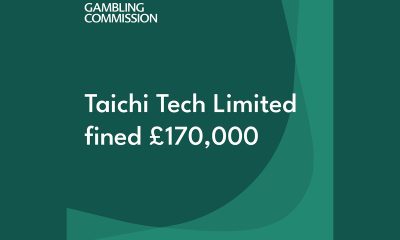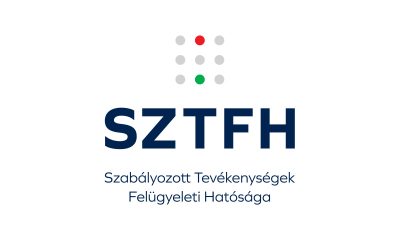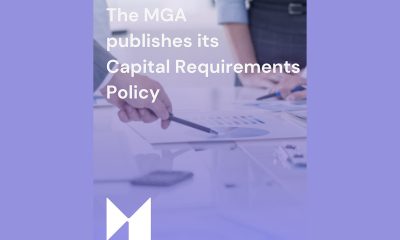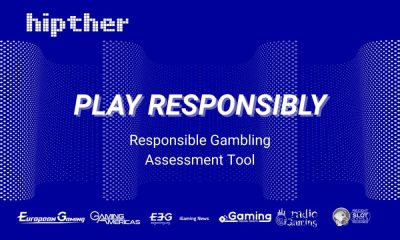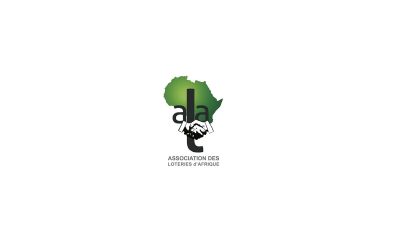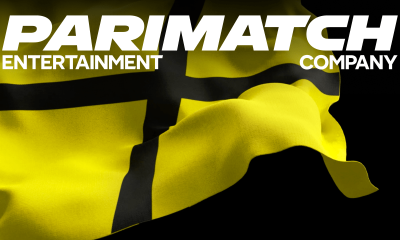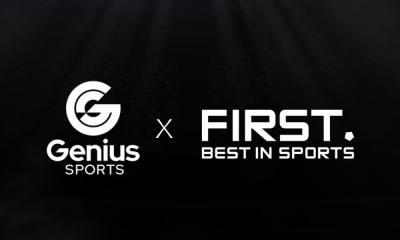Compliance Updates
NIGC Announces Departure of Chairman E. Sequoyah Simermeyer
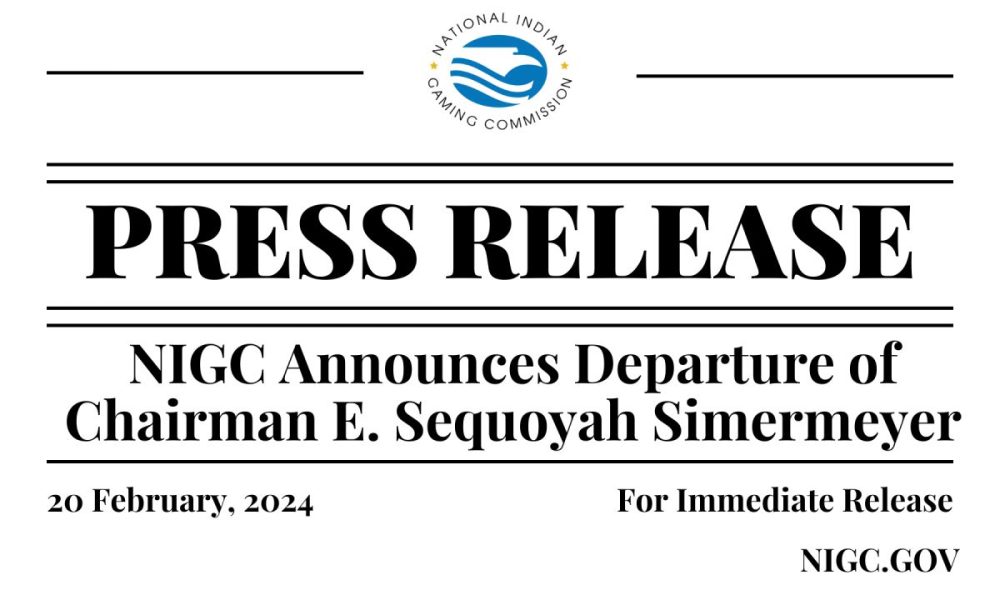
The National Indian Gaming Commission (NIGC) announced the resignation of E. Sequoyah Simermeyer, as the chairman of NIGC, effective Saturday, Feb. 24, 2024.
Simermeyer, confirmed by the U.S. Senate in November 2019, led the Agency through unprecedented challenges of a global pandemic. During this time, the Agency helped set the regulatory conditions for a multi-year, post-pandemic recovery, where Indian gaming gross revenues rose to a record $40.9B last year. Prior to his tenure as chairman, Simermeyer served with NIGC as associate commissioner and director of the Office of Self-Regulation since 2015.
Reflecting on his time at the Agency, Simermeyer said, “I’ve witnessed firsthand how tribes across the Indian gaming industry have pursued economic sustainability through gaming by relying on – and cultivating – the robust regulatory reputation for which Indian gaming is well known, and made better when supported by effective and efficient measures by Indian gaming’s regulators. I’m proud of the integral part this Agency has played in meeting the challenges of an evolving industry, and encouraged that NIGC’s strong cadre of professionals will continue to work hand-in-hand with gaming operations to ensure tribal gaming remains primarily for the benefit of its citizens as the Indian Gaming Regulatory Act (IGRA) mandated 35 years ago.”
From day one, Simermeyer established industry integrity, preparedness, outreach, and Agency accountability as strategic goals for the Agency, leading NIGC through a period of growth and expansion of programs and services available to gaming tribes.
Under Simermeyer’s leadership, the Agency took steps to grow its capacity to provide outreach, training and technical assistance to gaming tribes, notably formalizing its Environmental Public Health and Safely (EPHS) program to assist tribes with overall operational preparedness, and expanding the Agency’s ability to provide cybersecurity technical assistance as the industry faced emerging threats from cybercrimes, including NIGC’s first Chief Information Security Officer. His “3 for 35” campaign for workforce preparedness, aimed at building regulatory capacity to future-proof tribal gaming, was also an Agency signature outreach effort during his tenure.
NIGC’s efficient and effective approach to regulation was driven by its formalized, collaborative tribal consultation process, where over the past three years, the Agency published eight final rules to keep pace with changing regulatory conditions and industry best practices, while allowing tribes the maximum flexibility allowed under IGRA to pursue efficiencies intended to help operations grow and thrive. To further strengthen its compliance and oversight functions, the Agency also rolled out the “Report a Violation” tool on its website to allow for reporting suspected IGRA violations. NIGC also provided important clarity in the wake of industry-wide questions arising from emerging topics such as significant court decisions on sports betting, the impact of cannabis on licensing and the use of gaming revenue, and the independence of tribal gaming regulatory bodies.
Simermeyer also positioned the Agency as a lead collaborator with federal agencies and organizations similarly dedicated to the success of tribal gaming. NIGC’s annual multiagency Cybersecurity Symposium, Anti-Money Laundering/Banking Security Act (Title 31) regulatory training conference and ongoing partnership with the Department of Homeland Security’s Blue Campaign to prevent human trafficking, are all examples. He also led the Agency to pursue memoranda of understanding with federal agencies like the Federal Reserve Bank of Minneapolis, to promote a shared interest in researching the impacts of lending to tribes engaged in gaming and facilitating tribal access to capital.
Focusing on Agency operations, Simermeyer led the Agency through a multi-year IT security modernization plan to improve NIGC’s internal cybersecurity and resilience. Additionally, he transformed the Agency’s Criminal Justice Information System (CJIS) Audit program to better align with FBI requirements. As another step towards transparency and accountability, the Agency reimagined its fiscal annual report to better tell the story of its commitment to preserve and protect Indian gaming under IGRA, and the stories of the employees behind it. Perhaps most important, under Simermeyer’s leadership, the Agency achieved a 91% employee satisfaction rating on the 2023 Federal Employee Viewpoint Survey (FEVS), making the NIGC one of the best places to work in the federal government.
On transitioning to the next stage of his career, Simermeyer is grateful for his nearly nine years with the Agency. “My time with NIGC has been some of the most memorable and impactful years of my career. As a Native person, I’m truly blessed to have been surrounded by experts dedicated to protecting and preserving the valuable resource Indian gaming represents for our communities. I’m thankful for the advice and counsel of my fellow commissioners and NIGC staff, and the support and hard work of the nearly 5,000 tribal regulators who work alongside NIGC day-in and day-out to keep Indian gaming strong now, and for the next 35 years,” said Simermeyer.
Additional details regarding the transition will be forthcoming.
Compliance Updates
Taichi Tech Limited Fined £170,000 for Unfair Terms and Conditions
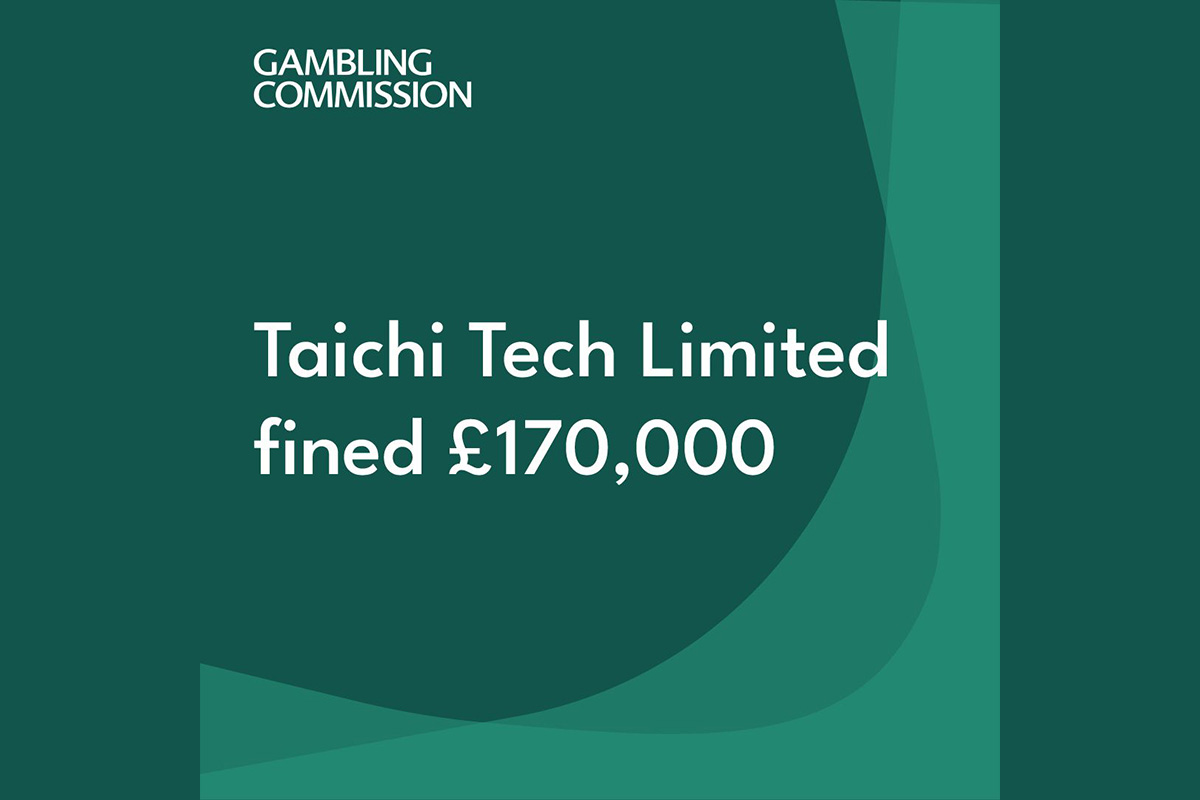
An online gambling business has been fined £170,000 by the UK Gambling Commission (UKGC) for regulatory failures including the use of unfair terms and conditions.
Taichi Tech Limited – trading as Fafabet – will also have to undergo a third-party audit to ensure it is effectively implementing its anti-money laundering and safer gambling policies, procedures and controls.
A Commission investigation revealed Taichi Tech Limited had stated that: “Fafabet have the right at their own discretion to close accounts or forfeit winnings” within their bonus terms for new casino promotions.
The Gambling Commission’s investigation concluded that Taichi Tech Limited breached the fair and open licensing condition by including a discretionary term allowing the operator to close customer accounts or forfeit winnings without clear justification. Such terms lack transparency and may lead to unfair outcomes for consumers.
The Consumer Rights Act 2015 (CRA) is the general consumer protection legislation, and it is explicitly referenced within the Licence Conditions and Codes of Practice (LCCP) that gambling companies must follow. The LCCP requires licensees to ensure that their terms and practices are fair, clear, and do not breach consumer protection law. Operators must therefore have regard to the CRA as part of their overall compliance obligations under the LCCP.
The investigation also found failures relating to anti-money laundering and social responsibility breaches.
Examples included:
• some customers were able to gamble large sums within a short period of time, despite the operator holding limited customer information
• in certain cases, individuals exhibiting potential markers of harm — such as high-velocity spending over short periods — received insufficient customer interaction from the operator
• where safer gambling emails were sent but not acknowledged by the customer and concerning behaviour continued, there was no further follow-up or intervention by the operator.
John Pierce, Director of Enforcement and Intelligence at the Gambling Commission, said: “We expect all operators — regardless of their size or customer base — to comply with consumer protection legislation and ensure their terms and conditions meet regulatory standards.
“Licensed operators must ensure their terms are clear, fair, and transparent, so customers fully understand what to expect.”
He added that the Commission’s assessment identified deficiencies in the operator’s social responsibility and anti-money laundering controls, including failures to effectively manage risk and implement adequate consumer protection measures.
The operator has acknowledged that it previously fell short of the standards expected by the Commission and has since taken steps to address these shortcomings. As part of the regulatory outcome, the operator is required to commission an independent third-party audit to provide assurance of ongoing compliance with all relevant regulatory requirements.
The post Taichi Tech Limited Fined £170,000 for Unfair Terms and Conditions appeared first on European Gaming Industry News.
Central Europe
Turnover of Legal Gambling Market in Hungary Increases
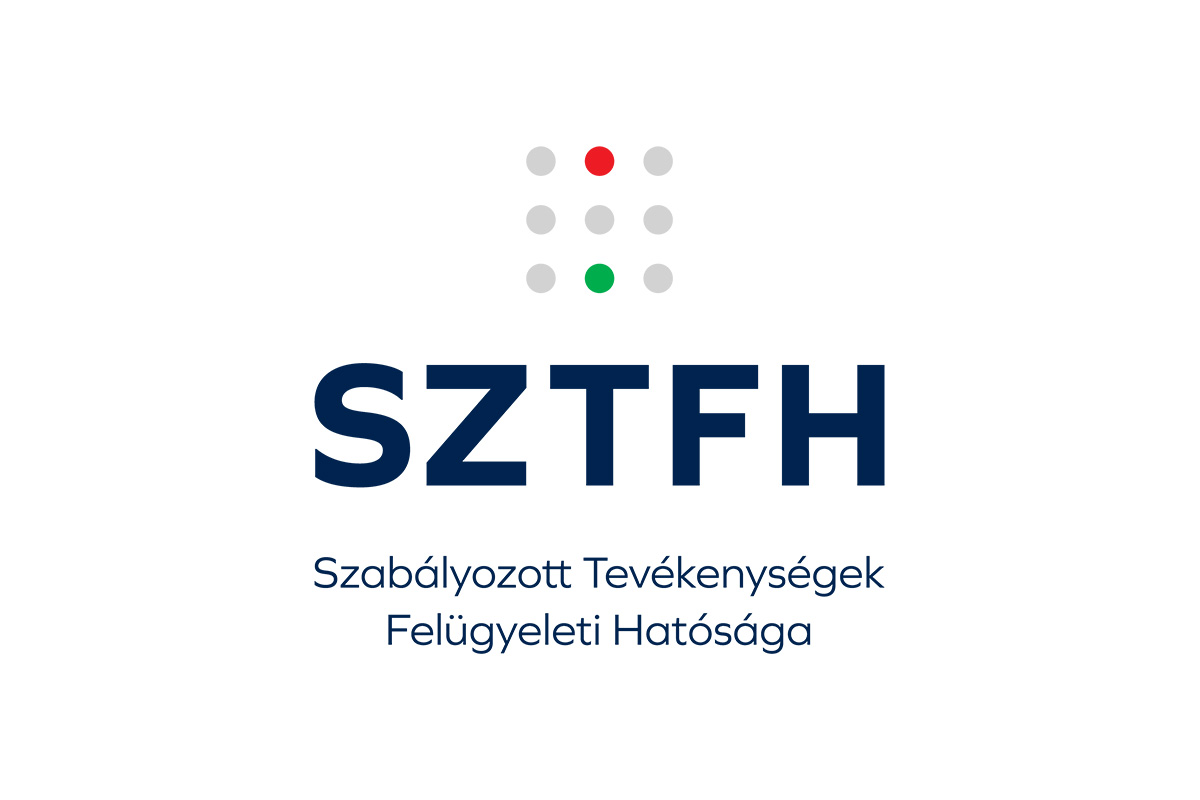
The Regulated Activities Supervisory Authority (SZTFH) has announced that the turnover of the legal gambling market in Hungary has increased.
The SZTFH and its predecessor have been blocking illegal gambling websites since 2014, preventing them from being accessible to Hungarian players. Thanks to the more than two thousand blockings ordered so far in 2024 and 2025, the traffic and turnover of the legal market is sharply increasing compared to the total market, which can be considered a significant improvement compared to the illegal market presence in previous years.
One of the main goals of the SZTFH is to take action against websites offering illegal online gambling that are not licensed in Hungary and the prohibited advertising sites that promote them, and to whitewash the Hungarian online gambling market. In the past two years, several legislative changes have come into force that have resulted in the acceleration and extension of the blocking procedure to advertising and contributing sites, and have created the opportunity to track and immediately block illegal sites that are constantly jumping to new domain names every day in order to evade the authority’s measures. Thanks to the change in the legal environment and the intensive action of the Authority, the number of visits to illegal gambling sites has now decreased significantly.
In the case of services offered by organisers who are not licensed to organise gambling in Hungary, the Authority has no possibility to oblige the gambling organiser to comply with the guarantee rules protecting the interests of the players, and the claim for the payment of the prize cannot be enforced before a Hungarian court. Gambling organisers who are not licensed by the Authority also violate the interests of the Hungarian State in the economic activity of organising and operating gambling. In addition to the above, by not joining the player protection register kept by the Authority, which prevents players who have been excluded from gambling voluntarily or by a court from participating in gambling, they also constitute an obstacle to the effective enforcement of goals related to player protection.
The SZTFH is committed to the elimination of illegal gambling and the whitening and increasing the competitiveness of the Hungarian gambling market in order to protect the interests of Hungarian players, and therefore will continue its intensive blocking activities with great effort and the use of innovative solutions in the future. Players can find out about the gambling organizers licensed in Hungary and the illegal sites blocked by the Authority on the Authority’s website.
The post Turnover of Legal Gambling Market in Hungary Increases appeared first on European Gaming Industry News.
Compliance Updates
MGA Signs MoU with MFSA
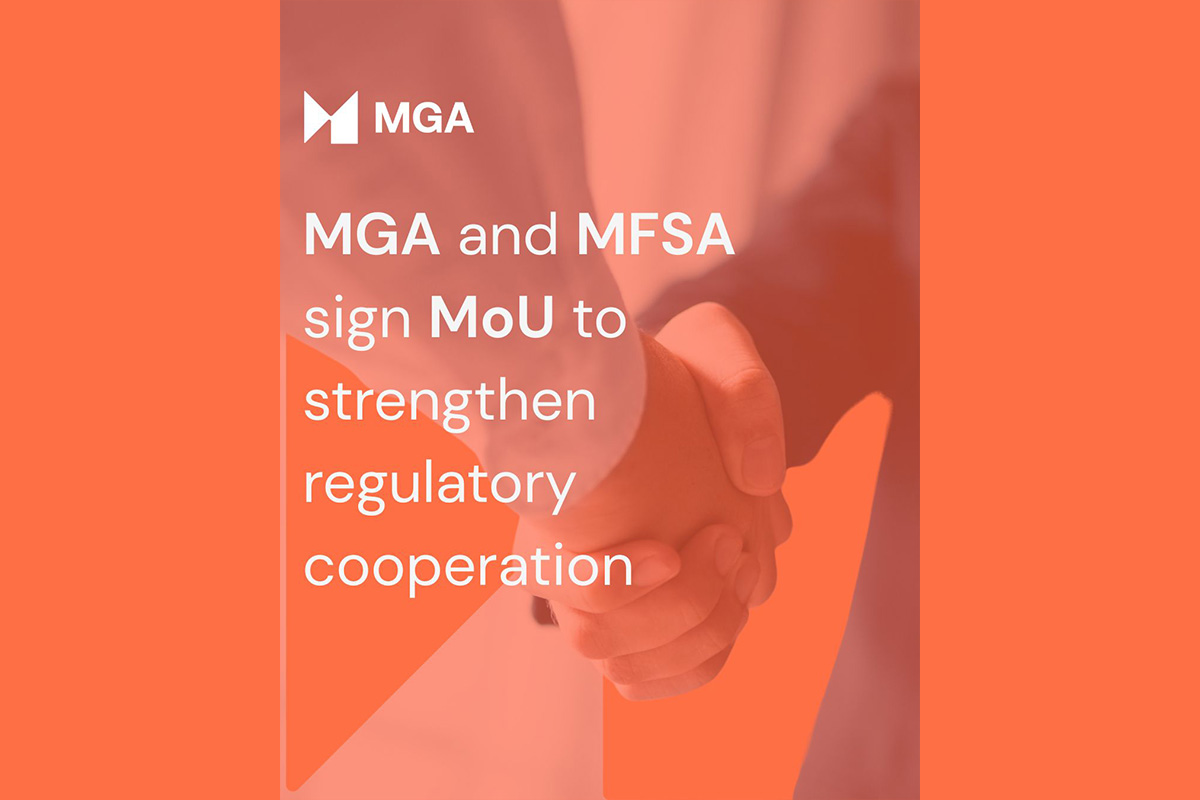
The Malta Gaming Authority (MGA) had signed a Memorandum of Understanding (MoU) with the Malta Financial Services Authority (MFSA) to enhance the collaboration and reinforcing the long-standing relationship between the two regulatory bodies.
This agreement complements an existing multi-party MoU between the Sanctions Monitoring Board (SMB), the Financial Intelligence Analysis Unit (FIAU), the MFSA and the MGA, which remains in force and governs cooperation in areas related to anti-money laundering, the financing of terrorism and the proliferation of weapons of mass destruction.
While the multi-party MoU continues to provide a robust basis for coordination in these specific areas, the MGA and the MFSA identified the need for a separate bilateral agreement to govern their broader relationship. The newly signed MoU sets out a structure for closer cooperation in areas of mutual regulatory interest, with the aim of supporting each authority in the effective discharge of its respective functions.
In addition, the MoU includes provisions relating to training and education, with the aim of equipping both authorities with the necessary skills and knowledge in areas where there may be regulatory overlap. This commitment to capacity building is intended to strengthen institutional competencies and support the overall effectiveness of the respective regulatory frameworks.
MGA CEO Charles Mizzi said: “This agreement marks another step forward in our commitment to strengthening inter-agency collaboration. The relationship between the MGA and the MFSA is an important one, and through this MoU we are not only enhancing the exchange of information but also fostering a shared commitment to high regulatory standards and professional development.”
MFSA CEO Kenneth Farrugia said: “The MoU that the MFSA entered into with the MGA is a reflection of our commitment and dedicated efforts to strengthen ties with other local authorities, as we continue to recognise the value of inter-institutional collaboration. This agreement enhances our mutual cooperation on due diligence and enforcement, which is essential in view of the similar players in the respective industries that we regulate and serve. The MoU itself goes beyond the exchange of good practice and intelligence, as it also focuses on the upskilling of our supervisors who are instrumental to the daily operations of both authorities.”
The post MGA Signs MoU with MFSA appeared first on European Gaming Industry News.
-

 AGCO5 days ago
AGCO5 days agoAGCO Fines Great Canadian Casino Resort Toronto $350,000 for Serious Regulatory Violations Linked to Impromptu After-Party on Gaming Floor
-

 Africa5 days ago
Africa5 days agoALA Hosted Seminar on Artificial Intelligence and Cybersecurity
-

 Canada5 days ago
Canada5 days agoIGT and Atlantic Lottery Sign Eight-Year Video Lottery Central System Technology Agreement
-

 Africa4 days ago
Africa4 days agoDRC Signs MoU for Public-Private Partnership with Burundi’s East African General Trade Company
-

 Latest News5 days ago
Latest News5 days agoUnlock Top-Tier Deals and Careers: Parimatch joins iGB L!VE 2025
-

 Blokotech6 days ago
Blokotech6 days agoBlokotech unveils Cristian Tonanti as new Casino Partnership Manager
-

 First5 days ago
First5 days agoFIRST and Genius Sports Extend Landmark Data Partnership, Powering Continued Growth
-

 Latest News5 days ago
Latest News5 days agoJuicy Wins, Crystal Clear: ELA Games Releases New Luxury Title




